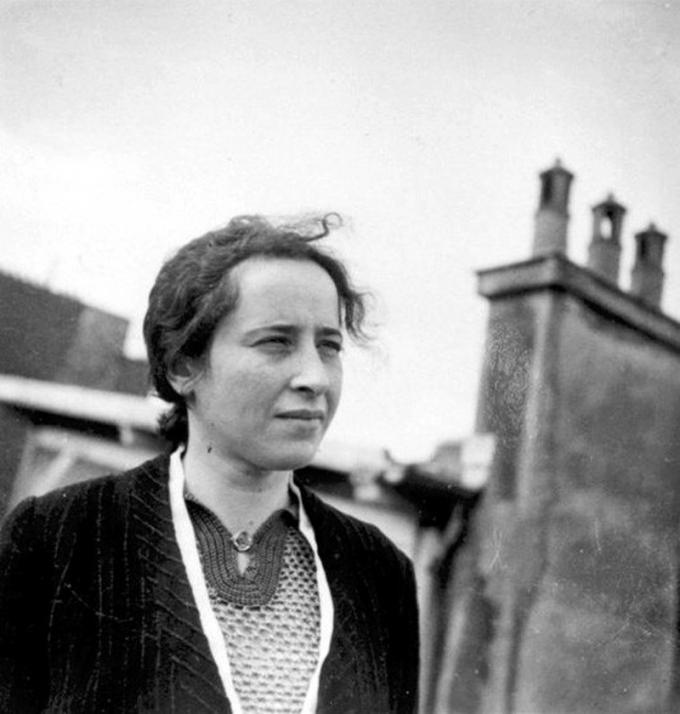
By popular demand, a couple more quotations taken from the chapter “The Apostle Paul and the Impotence of the Will” in the second volume of her The Life of the Mind:
The Apostle Paul’s discovery, which he describes in great detail in the Letter to the Romans, again concerns a two-in-one, but these two are not friends or partners; they are in constant struggle with each other. Precisely when he “wants to do right (to kalon),” he finds that “evil lies close at hand” (7:21), for “if the law had not said, ‘You shall not covet,'” he “should not have known what it is to covet.” Hence, it is the command of the law that occasioned “all kinds of covetousness. Apart from the law sin lies dead” (7:7, 8).
The function of the law is equivocal: it is “good, in order that sin might be shown to be sin” (7:13), but since it speaks in the voice of command, it “arouses the passions” and “revives sin.” “The very commandment which promised life proved to be death to me” (7:9-10). The result is that “I do not understand my own actions. For I do not do what I want, but the very thing I hate” (7:15). And the point of the matter is that this inner conflict can never be settled in favor of either obedience to the law or submission to sin; this inner “wretchedness,” according to Paul, can be healed only through grace, gratuitously. (pgs. 64-65)
————–
Law itself is understood as the voice of a master demanding obedience; the Thou-shalt of the law demands and expects a voluntary act of submission, an I-will of agreement. The Old Law said: thou shalt do; the New Law says: thou shalt will. It was the experience of an imperative demanding voluntary submission that led to the discovery of the Will, and inherent in this experience was the wondrous fact of a freedom that none of the ancient peoples — Greek, Roman, or Hebrew — had been aware of, namely, that there is a faculty in man by virtue of which, regardless of necessity and compulsion, he can say “Yes” or “No,” agree or disagree with what is factually given, including his own self and existence, and that this faculty may determine what he is going to do. (pgs. 64-65)
But this faculty is of a curiously paradoxical nature. It is actualized by an imperative that says not merely “Thou shalt” — as when the mind speaks to the body and, as Augustine put it later, the body immediately and, as it were, mindlessly obeys — but says “Thou shalt will,” and this already implies that, whatever I may in fact eventually do, I can answer: I will, or I will not. The very commandment, the Thou-shalt, puts me before a choice between an I-will and an I-will-not, that is, theologically speaking, between obedience and disobedience… If the will did not have the choice of saying “No,” it would no longer be a will; and if there were not a counter-will within me that is aroused by the very commandment of the Thou-shalt, if, to speak in Paul’s terms, “sin” did not dwell “within me” (Romans 7:20), I would not need a will at all. (pgs 68-69)
For another recent sermon that brings this subject to life, check out this one by RJ Heijmen. More soon…

COMMENTS
3 responses to “Hannah Arendt Explains Paul’s Discovery”
Leave a Reply













“This is the covenant that I will make with them after those days, says the Lord: I will put my laws in their hearts, and I will write them on their minds,”